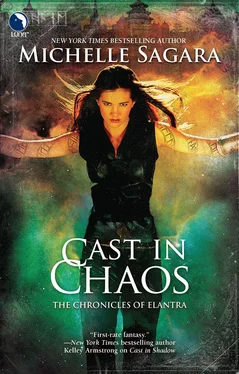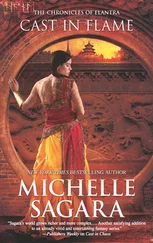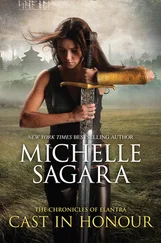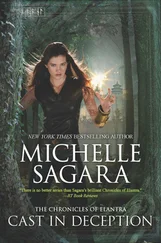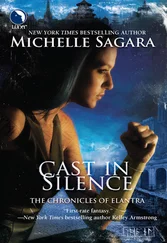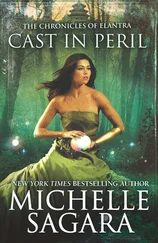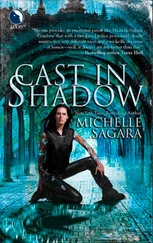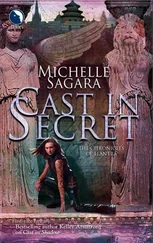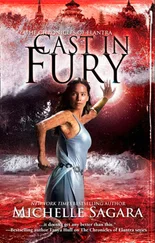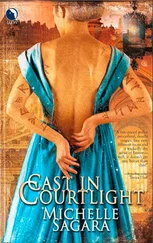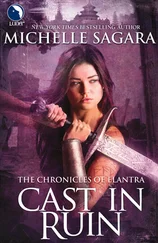But one of the other things it implied was that the portal existed in an entirely different space than the rest of the Castle. Or at least the rest of the fief. She turned that one over for a few minutes. What did she know about the Castle, after all? Its well, if you fell all the way down to the bottom and miraculously survived, contained a cavern with a vast lake that the Elemental Water could actually reach out and touch; its basement contained a literal forest of trees that seemed sentient—certainly more sentient than the Hawks when they’d been out drinking all night and had work the next day; somewhere beyond that forest, there was a huge cavern that was covered in runes that were very similar to the ones that adorned half of her skin.
She grimaced. What else?
There was a throne room. She’d seen it once. It contained statues of almost every living race in the Empire, and when Nightshade desired it, those statues came to life. Were, in fact, in some way, always alive. He’d said he used the power of the Castle to create them, but made it clear that he had started from flesh. But…how? How had he used that power? What had he told it to do?
She stood, found that her knees no longer wobbled, and began to pace in a rectangle around the low table.
What was the Castle, at heart? It was not the Tower of Barren. Or rather, of Tiamaris. It didn’t speak, or think, or plan, or love.
Or did it?
“No,” was the quiet reply.
Nightshade stood in the open doors, a tray in his hands. Or rather, between the open palms he held to either side. She hesitated, and then walked quickly over to where he stood and lifted the tray the normal way. Watching the Lord of the fief play servant always unsettled her.
He raised a dark brow; his eyes were still the shade that exists just before emerald falls into sapphire. His hair, unbound, draped across both shoulders; his skin was pale. The tray shook in her hands; she looked at what was on it. Water, or a liquid just as clear and colorless, fruit, cut cheese, meat. No bread. She carried the tray to the table. He followed in silence.
She was always aware of where, in a room, Nightshade was. It might have been because of the mark; it might have been because she knew his true name. But she thought she’d have been just as aware if she’d had neither. Even his silences demanded attention. She could more easily ignore the Dragon Lords whose company she kept than the Lord of Nightshade.
He knew. It amused him. Which annoyed her. “Why doesn’t Castle Nightshade speak?” she asked, veering away from both annoyance and compulsion.
“I think you know the answer to that better than I.”
Clearly, if she were interested in forcing the conversation into safer channels, she was going to have to carry most of it. “You were there. You were there when the Tower of—of Tiamaris—woke.”
“I was there for only some part of it. My knowledge of the Towers at that time—and it was not without significance—was based in its entirety on their nascent forms. I understood, how ever,” he added, voice softer, gaze fixed on her face, “that I was not to be bored. I had encountered a mortal—a mortal with the unfortunate manners of a wild human, or a coveted one—and she bore my mark.” His glance brushed the sleeves of her shirt, and his eyes flared—literally.
Magic caused her skin to tingle and the hair on the back of her neck to rise. Before she could speak or move, the ties at her sleeves fell open, and those sleeves were rolled, end over end, up her arms until the inside of those arms were exposed. Both arms, simultaneously. It was a neat trick, for a value of neat that was also distinctly uncomfortable.
“You bore, as well, the marks of the Chosen. And you seemed both powerless and ignorant, in the main, of what those marks might mean to you should you survive them.”
“But the Tower—” she began, attempting to control the conversation. Or anything, really.
“The Tower of Tiamaris heard you,” was his reply. “As did I. You were there when his Tower woke. You were not, however, here. Nor were you in the other fiefs in which such Towers woke and found they were powerless. What you touched, Kaylin, you changed. You have not touched the heart of Castle Nightshade, and before you ask—if you are so foolish as to entertain the notion—no, you will not wake the Castle’s heart.”
But as he said it, she felt both the force of his declaration, and the tremor of uncertainty that lay beneath it. He wasn’t sure that she could be kept from it if she wanted to go to the heart.
“You are wrong,” was the cool reply. “But the only certainty is your death, and I am reluctant, at this moment, to kill you.”
“But at this moment,” she replied, half touching his thoughts, half speaking them as if they were also her own, “you can kill me. And you’re not certain that’s always going to be true.”
One brow rose, revealing more of the blue his eyes had become. He didn’t deny it, however; there wasn’t any point. Not that he wouldn’t have lied if there was any chance it would be effective; the burden of truth for any Barrani was decided by the gullibility of the audience, and the possible consequences of the lie itself to said Barrani.
She glanced at her arms.
“Yes,” he said quietly.
“You knew. You knew I would live in Nightshade. You knew it centuries ago.”
“I knew,” was the quiet reply, “that you would be born in the fief of Nightshade. I knew that you would grow here. I also knew that until the moment you were old enough, there would be no way to distinguish you from any other motherless human urchin.”
The words, and the callous sentiment that informed them so perfectly, caused Kaylin’s jaws to ache.
“I knew, when Severn Handred came to my Castle for the first time, that the long wait was almost done. Barrani are immortal, but we are not famed for our patience. I was not, initially, absorbed by the boredom and frustration of waiting. There was much, indeed, that I had to discover, much to achieve, before your arrival.”
“You knew that the Outcaste—the Dragon—would be here.”
“No. That, I did not know, not immediately.” He stepped toward her, and she stood her ground, tensing slightly as he raised his hand to touch her cheek. It was, oddly enough, the cheek that was unmarked. “I was not, then, the man I am now. What I could read from you—and I did try—was not so complete.
“But I waited, Kaylin.”
“You marked me.”
“Yes.”
“But you never said a word.”
“No. I knew, when we first met, that the time for speech would follow. But I did not wish to influence or change what might occur in the Tower in my past and your future. Had I, who knows what might have occurred in the darkness there? We might have no fieflord, no Tiamaris, and the shadows might now be spilling across the Ablayne, and from there, to the whole of the Empire.
“I interfered very, very little in your life. I knew very little of my role in it. I learned, for instance, that you would go to the High Halls, that you would face the test of the Tower there. You are not guarded or careful with your knowledge. Perhaps, if you lived to be my age, you would learn this caution.
“But perhaps not.” His fingers stroked her cheek; his eyes were a blue that spoke of sky, not cobalt. She didn’t know what it meant, and didn’t want to know. “I have been careful. I have been cautious.
“But the fief of Tiamaris now exists. The moment our paths crossed at that Tower in your timeline, I was free. I am no longer constrained by the possible future. I am no longer constrained by any attempt to meet the future as promised, by a single day, in the past.
Читать дальше
